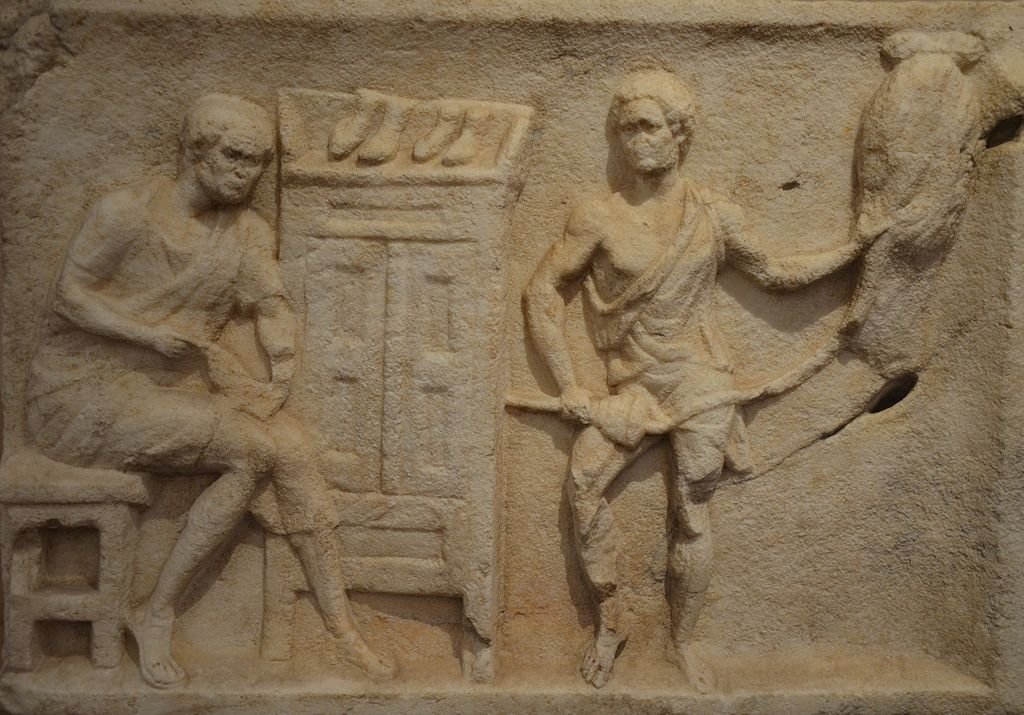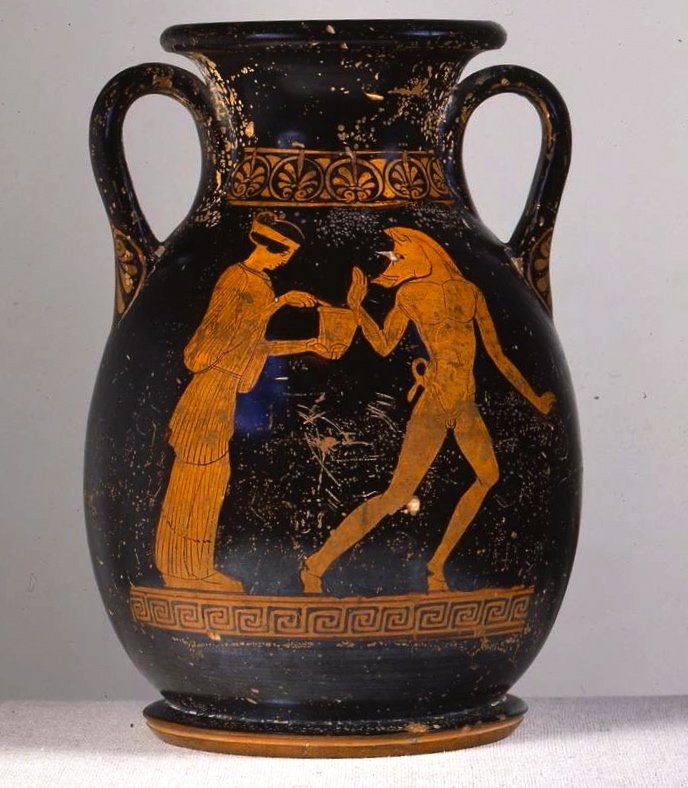Jean Bodin, “Refutation of the Opinions of Johann Weyer”, On the Demon-Mania of Witches, 1580, fol. 225v-227v
[Johann] Weyer agrees that witches are in communication and pacts with devils, and that they do many wicked things with the help of the devil. Nevertheless, in his book On Witches (De lamiis), at one point he says that no compact exists, at another that one could not prove it exists, at another that the confessions of witches are not to be believed, at another that they trick themselves into thinking that they have done what they say and that they are possessed by the melancholic disease. This is the disguise that ignorant people or sorcerers have used in order to help their familiars escape and increase the reign of Satan.
Until now, those who have said it was melancholia may not have believed that demons exist, nor, perhaps, that any angels exist, nor even any god. But Weyer confesses that there is a god (as also the devils confess and tremble beneath his power as we read in scripture). He also confesses throughout his writings that there are good and bad spirits that conspire and make pacts with men. One must not, therefore, attribute the transportation, bad deeds and strange actions of witches to melancholia. Much less should one make women melancholics. For antiquity has noted a peculiar fact: that no woman ever died of melancholia nor any man of extreme joy, but on the contrary many women have died of extreme joy.
And because Weyer is a doctor, he cannot ignore that the humour of women is directly contrary to the dryness of melancholia from which the madness arises, whether it comes from dry, yellow bile or from melancholic fluid, as doctors agree. For both arise from excessive heat and dryness as Galen says in On Black Bile (*melan=black, chole=bile). Women, on the other hand, are naturally cold and wet, as the same author says, and all the Greeks, Latin and Arabs agree on this very point. For this reason, Galen also says that a man, having a hot and dry mixture, when in a hot and dry region, he can fall into the melancholic disease.
At any rate, Olaus the Great, Caspar Peucer, Saxo Grammaticus and Weyer himself agree with all the Inquisitors of witches in Germany that below the arctic region where the sea is frozen, in Germany and the mountains of the Alps and of Savoy – all these regions are full of witches. It is also certain that northern peoples have as little melancholia as the people of Africa have phlegm. For one sees that all northern people are white, with green eyes, blond hair, and slender, the face red, joyous and talkative, things totally contrary to the melancholic humour.
In addition, Hippocrates in the first book of the Epidemics and Galen in the same book holds that women are generally healthier than men because of their menstrual flow which protects them from a thousand diseases. Never, says Hippocrates, have women suffered gout, ulcerations of the lungs, adds Galen (in the book On Venesection), epilepsy, apoplexis, phrenesis, lethargy, convulsions, or tremblings while they have their “flows”, or, to put it better, their menstruation and flows. And although Hippocrates says that seizures (including those caused by demonic possession, which is called the sacred disease) are natural, nevertheless he maintains that these happen only to the phlegmatic and not at all to the bilious—something Johann Weyer, being a doctor, cannot ignore.
So, we have shown that women are normally more often demoniacal than men, and that witches are often transported in body, and also often ravished in ecstasy, their souls being separated from their bodies, by means of something diabolical, leaving the body insensible and stupid.
It is even more ridiculous to say that the illness of witches comes from melancholia, seeing that illnesses arising from melancholia are always dangerous. Nevertheless, one sees witches who have practiced this occupation for 40 or 50 years, and from the age of 12, like Jeanne Harvilliers, who was burned alive on the 29 April 1578*, and Magdalena de la Cruz, Abbess of Cordoba in Spain, 1545, having had ordinary acquaintance and sexual intercourse with the devil, which lasted 40 years in the first case, and 30 in the other. It is necessary, therefore, that Weyer admit that it is a notable incongruity in him as a doctor, and an ignorance far too gross (but it is not ignorance) to attribute melancholic diseases to women, which are as little compatible with them as the praiseworthy affections of a temperate melancholic humour, affections which make men wise, serious, contemplative (as all the ancient philosophers and doctors have remarked) — qualities as little compatible with women as fire with water. And Solomon himself, who also clearly recognized the humour of women (that man of the world) said that among a thousand men he saw one that was wise, but among women he did not see a single one. Let us put aside, therefore, the fanatical error of those who make women melancholics.
What’s more, Weyer—seeing that his cloak of melancholia was removed by demonstration and self-evident truth with respect to divine and human law, and by so many stories from all the peoples of the earth, and by so many confessions, some voluntary, some forced, and so many judgments, convictions, condemnations, and executions performed for 3,000 years in every country in the world—he offered a ruse much too gross to prevent sorcerers from being put to death, saying that the devil seduces the witches and makes them believe that they are doing what he does himself.
In doing this, he pretends that he is very much against Satan; however, he saves the sorcerers, which is plainly just to mock Satan with words, but in reality establish his grandeur and his power. For he knows well that the magistrates do not have any jurisdiction nor power to seize the devils. This will not only absolve witches, but also all the murderers, thieves, and perpetrators of incest or parricide, who are compelled by the enemy of the human race to carry out their deeds. Then he offers high praise to the tax of the Papal Camera, which condemns repentant witches to pay two ducats for a pardon; and in another place he says that he maintains not only that witches should not be punished with death by the law of god, but also that there is no mention of witches in holy scripture by which he could be easily convinced. Here I call on god and his law as witness, and 1000 passages from the Bible to convince this man.
Car Wier (I. lib.2.c.4. et 8. et 34. et lib.4 c.14. et lib.5.cap.9 de Praestigiis, et Saepe alibi.) est d'accord que les Sorcieres ont communication, et paction avec les Diables, et qu'elles font beaucoup de meschancetés à layde du Diable, et neantmoins au livre de lamiis, il dict tantost qu'il ny a point de paction, et tanost qu'on ne sçauroit le prouver, tantost qu'il ne faut pas croire la confession des Sorcieres, et qu'elles s'abusent de penser faire ce qu'elles disent, et que c'est la maladie melancholique qui les tient. Voila la couverture que les ignorans, ou les Sorciers ont prise pour faire evader leurs semblables et accroistre le regne de Sathan. Par cy devant ceux qui ont dict que c'estoit la melancholie, ne pensoyent pas qu'il y eust des Demons, ny peut estre qu'il eust des anges, ny Dieu quelconque. Mais Wier confesse qu'il y a un Dieu (commes les Diables le confessent aussi, et tremblent soubz sa puissance, ainsi que nous lisons en l'escripture (Epistola Jacobi c.2)) il confesse aussi par tous ces escripts qu'il y à de bons, et malins esprits qui ont intelligence, et paction avec les hommes. Il ne falloit donc pas attribuer les transports des Sorciers, leurs malefices, et actions estranges à la melancholie, et beaucoup moins faire les femmes melancholiques, veu que l'antiquité à remarqué pour chose estrange, que jamais femme ne mourut de melancholie, ny l'homme de joye extreme, ains au contraire plusieurs (Pline liv. 7. Valere Mox. Solin.) femmes meurent de joye extreme, et puisque Wier est medecin il ne peut ignorer, que l'humeur de la femme ne soit directemeut contraire à la melancholie aduste, dont la fureur procede, soit qu'elle vienne à bile flana adusta, aut à succo melancholico, comme les medecins demeurent d'accord. Car l'un et l'autre procede d'une chaleur, et secheresse excessive comme dict Galen au livre de atra bile. Or les femmes naturellment sont froides et humides comme dict le mesme autheur, et tous les Grecs, Latins, et Arabes, s'accordent en ce point icy. Et pour cette cause Galen (in liv. de atra bile) dit aussi que l'homme estant d'un temperament chaut, et sec, en region chaude et seche, et en esté tombe en la maladie melancholique, et neantmoins Olavs le grand, Gaspar Peucerus, Saxo Grammatic, et Wier mesmes est d'accord avec tous les inquisiteurs des Sorcier d'Allemaigne que souz la region arctique, ou la mer glace, et en Allemaigne et aux mons des alpes, et de Savoye tout est plein de Sorcieres. Or est il certain que les peuples de Septentrion tiennent aussi peu de la melancholie, comme les peuples d'Afrique de la pituité. Car on voit tous les peuples de Septentrion blancs, les yeux vers, les cheveux blondz, et desliez, la face vermeille, joyeux et babilardz, chose du tout contraire à l'humeur melancholique. D'avantage Hippocratte au premier livre des maladies populaires, et Galen au mesme livre tiennent que les femmes generallement sont plus saines que les hommes, pour les flueurs menstruales, qui les garantissent de mille maladies. Jamais, dict Hippocrate, les femmes n'ont la goute, ny ulceratione de poulmons, dict Galen (in libro de Vena Sectione), ny d'epilepsies, ny d'apoplexies, ny de frenesies, ny de lethargies, ny de covulsions, ny de tremblement tant qu'elles ont leurs flueurs, ou pour mieux dire leurs menstruës, et flueurs. Et combien que Hippocrate (in libro de Mobrbo Sacro) dict que le mal-caduc, et de ceux qui estoyent assiegés des Demons, qu'on appelloit maladie sacree, est naturelle: neantmoins il soustient, que cela n'advient sinon aux pituiteux, et non point aux bilieux: ce que Jean Wier estant medecin, ne pouvoit ignorer. Or nous avons monstré que les femmes ordinairement sont demoniaques plustost que les hommes, et que les Sorcieres sont transportees souvent en corps, et souvent aussi ravies en ectase, estant l'ame separee due corps, par moyens diaboliques, demeurant le corps insensible, et stupide. Encores est il plus ridicule de dire, que la maladie des Sorcieres provient de melancholie, veu que les maladies procedans de la melancholie, sont tousiours dangereuses (Galen, in lib. de atra bile). Neantmoins on void des Sorcieres, qui ont fait ce mestier quarante, ou cinquante ans, et de l'aage de douze ans, comme Jeanne Haruilier, qui fut bruslee vive le vigntneufiesm Avrile, mil cinq cens septante huict (1578), et Magdaleine de la Croix, Abbesse de Cordouë en Espaigne, mil cinq cens quarante cinq (1545), avoyent eu accointance ordinaire, et copulation avec le Diable, qui dura quarante ans à l'une, et trente à l'autre. Il faut donc que Wier confesse que c'est une incongruité notable à luy qui est Medecin, et ignorance par trop grossiere: (mais ce n'est pas ignorance) d'attribuer aux femmes les maladies melancholiques, qui leur conviennent aussi peu que les effects loüables de l'humeur melancholique temperé, qui rend l'homme sage, posé, contemplatif, (comme tous les anciens Philosophes et Medecine on remarqué (Aristot. in Proble. sectio. 30.princip.)) qui sont qualités aussi peu compatible avec la femme, que le feu avec l'eau. Et mesmes Salomon qui cognoissoit aussi bien l'humeur des femmes, que homme du monde, dit qu'il à veu de mil (in proverbiis.) hommes un sage, mais de femmes qu'il n'en à pas veu une seule. Laissons donc l'erreur fanatique de ceux qui font les femmes malancholiques. Aussi Wier voyant que son voile de melancholie estoit descouvert par la demonstration et verité apparente partant de loix divines et humaines, par tant d'histoires de tous les peuples de la terre, par tant de confessions les unes volontaires, les autre forcees, part tant jugemens, de convictions, de condamnations, d'executions faites depuis trois mille ans en tous les pays du monde, il c'est advisé d'une ruse trop grossiere, pour empecher qu'on face mourir les Sorciers, disant (9.cap.4 et ca.ult. de Lamiis) que le Diable seduict les Sorcieres, et leur faict croire qu'elles font ce que luy mesme faict. Et en ce faisant il fait semblant, qu'il est bien fort contraire à Sathan, et ce pendant il sauve les Sorciers: qui est en bons termes se jouer avec Sathan de parolles, et en effect establir sa grandeur, et sa puissance. Car il sçait bien que les magistrats n'ont point de Jurisdiction ny de main mise sur les Diables. Que n'est pas seulement absoudre les Sorciers, ains aussi tous les meurtriers, voleurs, incestueux, et parricides, qui sont poussés par l'ennemy du genre humain à faire ce qu'ils font. Puis il loue grandement (4.cap.24. de Lamiis) la taxe de la chambre du Pape, qui condamne les Sorcieres repenties à deux ducats pour le paron: et en autre (5.lib.2.c.335 de Praestig.) lieu il dit que s'il soustenoit que non seulement les Sorcieres ne doyvent estre punies à mort par la Loy de Dieu, ains aussi qu'il n'est faicte aucune mention des Sorcieres en la S. Escripture, qu'il ne peut estre conveincu facilement. Icy j'appelle Dieu, et sa loy en tesmoignage, et mille passages (6. Exod.ca.7. et 8. et 9. et 20. Deutero. ca.18 et 4. Reg. c.9. et 21. et 23. et. 2.Parali.33. et Jefa.ca.34 et Jesa. ca. 34. et 8. et 47. Daniel.cap.2. Miche.c.3. et cap.5. Ezechiel ca.13. Num.ca.23. Hierem. ca. 19. et 23. et 27. et 50. et Acto. cap.16. Nahum. c.3.) de la Bible pour convaincre cest homme.






